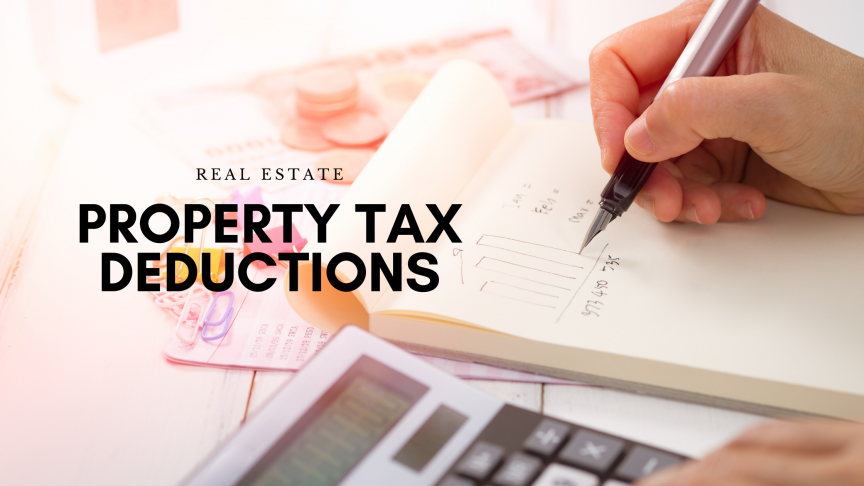Plan ahead for big savings when you file taxes
Real estate property tax deductions can mean big savings for homeowners, but getting them requires a bit of planning before you file your return each year.
What is deductible?
According to Nerd Wallet:
You may deduct up to $10,000 ($5,000 if married filing separately) for a combination of property taxes and either state and local income taxes or sales taxes.
You might be able to deduct [real estate] property taxes you pay on your:
NerdWallet
• Primary home
• Co-op apartment
• Vacation homes
• Land
• Property outside the United States
How to get your deductions
To encourage homeownership, the IRS offers several tax breaks on federal and state tax returns. To snag a real estate property tax deduction, you’ll need to use Schedule A when filing. You can calculate your deduction by itemizing expenses on this form. While it may take a bit more time, it offers the potential of seeing significant savings in your tax bill.
A few things to keep in mind:
- Gather your tax records and track everything. You’ll want to keep a file of your home’s tax bill and related expenses. This may include things like mortgage interest, property taxes paid, private mortgage insurance or points paid.
- Research credit opportunities available. The government offers a variety of credits to help owners acquire and improve properties. Consider your qualification for first-time homebuyer credits. Or, check for home improvement credits like those for clean energy improvements (solar power, wind power, etc) as you start new projects.
- If you sell, you likely won’t have to pay taxes on the profit. If you’ve owned and lived in the home for at least two of the five years before the sale, you won’t pay taxes on the first $250,000 of profit. If you’re married, the number doubles to $500,000.
- If you owned your home for part of the year (where are our homebuyers and sellers at?!), you can usually deduct the taxes for the time you owned it.
- You can increase deductions by checking your closing paperwork closely. If you bought or sold a house within the year, look at what you paid at closing for taxes.
The IRS website has a lot of information that can help you to navigate your personal tax situation. In fact, they have an entire publication on Tax Information for Homeowners.
Interested in learning more? Check out these assistance programs, tax credit opportunities and tools you could be missing out on:
- First-time homebuyer credits
- FNMA HomePath ReadyBuyer Program – up to 3% in closing cost assistance toward the purchase of a foreclosed property owned by Fannie Mae
- FHA loans – qualified borrowers can get up to 96.5% of the value of the home by putting 3.5% down up front
- Mortgage points
- IRS energy incentives
- Second home tax breaks
- Tax advantages of buying a home
- VA Options for Veterans
- USDA Rural area development programs
- FSA Farmer and rancher programs
- Beginning Farmers and Ranchers Loans including details about youth loans, minority and women farmers and ranchers, farm operating loans, farm ownership loans and much more

